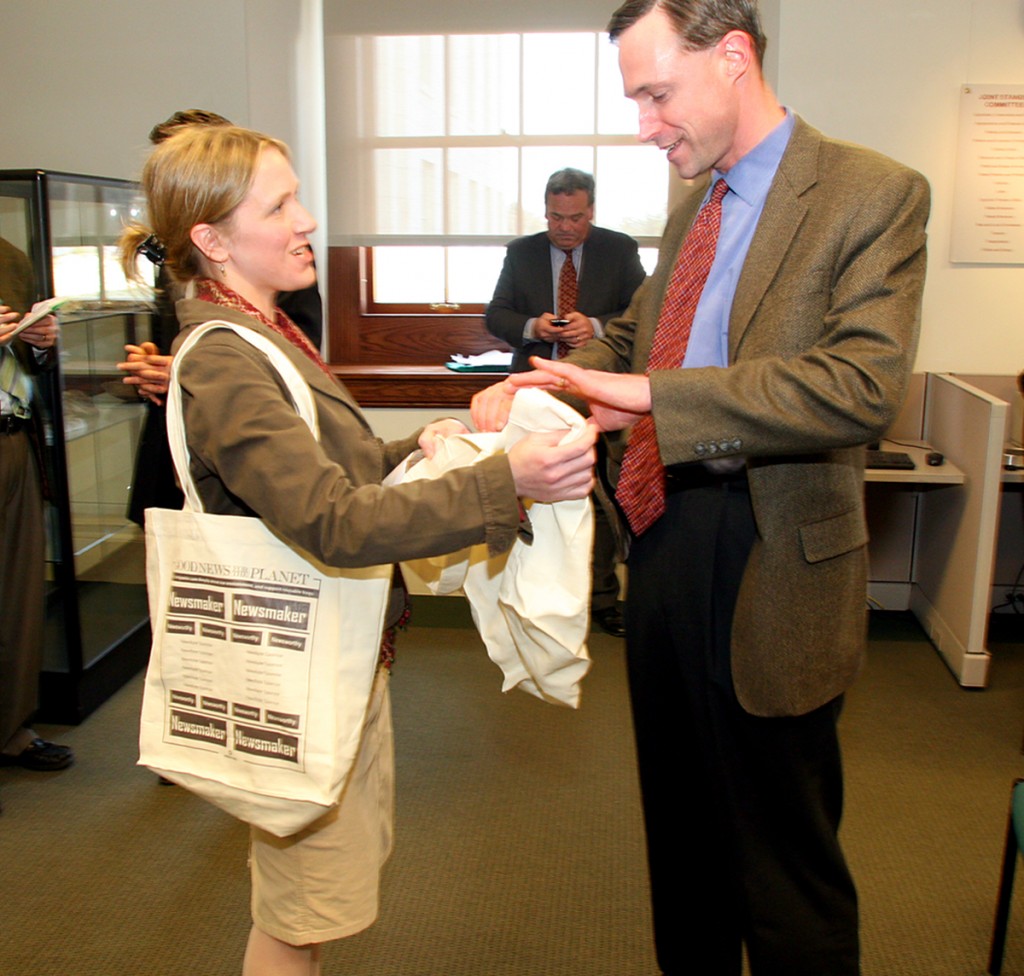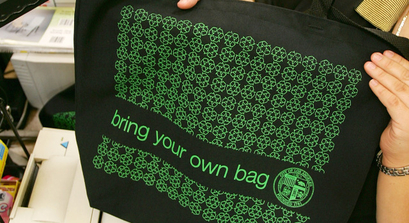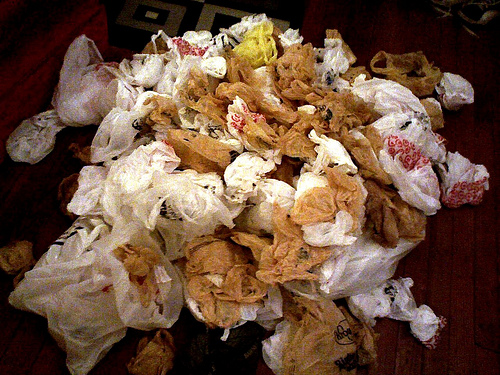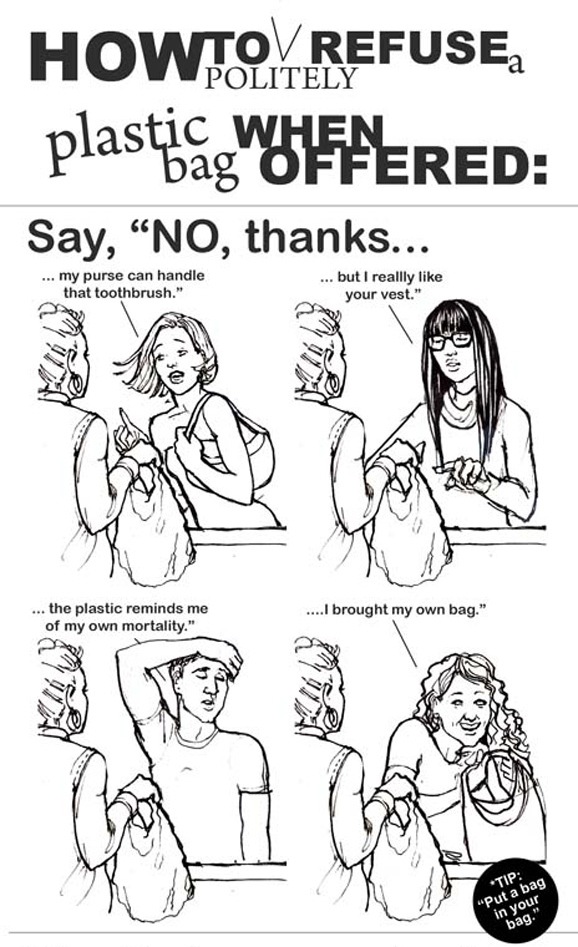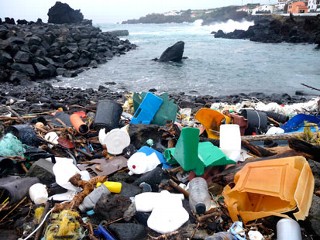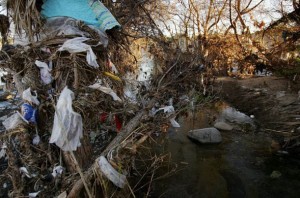 Some states are considering (or have enacted) bans on plastic bags, but in Maine, environmentalists and retailers are working together to encourage the use of reusable bags—voluntarily.
Some states are considering (or have enacted) bans on plastic bags, but in Maine, environmentalists and retailers are working together to encourage the use of reusable bags—voluntarily.
The Natural Resources Council of Maine is participating in a voluntary effort by retailers to encourage Mainers to use reusable bags instead of carrying home their groceries in throw away plastic bags. Also on board for the voluntary effort instead of an outright ban or tax is the Maine State Chamber of Commerce. A plastic bag ban was under consideration in committee, as were taxes or fees on the throw away bags, but lawmakers chose a voluntary effort, and a hard goal of reducing plastic bag use by at least a third by 2013.

